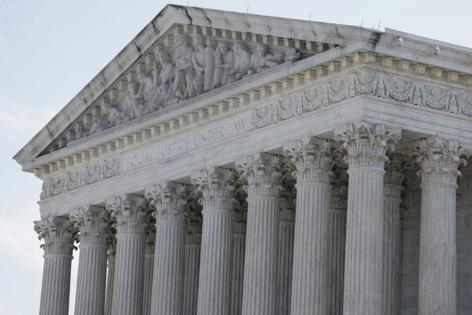Supreme Court to hear arguments over preventive care task force
Published in Health & Fitness
WASHINGTON — The Supreme Court is set to hear oral arguments Monday about the legality of the process to mandate cost-free preventive care used by millions of Americans, in a case brought by a group of Texas businesses objecting to coverage for an HIV preventive drug.
The U.S. government has asked the justices to overturn a decision by the U.S. Court of Appeals for the 5th Circuit that held that a preventive care task force created by the 2010 health care law is unconstitutional and threw the preventive care approved by that body into legal uncertainty.
Experts said the justices, depending on how they decide the case, could end cost-free preventive care such as cancer screenings and imperil how the law handles vaccine policy and health care for children.
Upholding the lower court ruling could see insurers impose costs on patients to receive the dozens of screenings and other care currently mandated by the task force, or refuse to cover them entirely, according to Andrew Twinamatsiko, director of the Center for Health Policy and Law at the O’Neill Institute of Georgetown University.
“So there is a likelihood that insurers will refuse to cover them or impose high cost-sharing requirements that would dissuade people from taking preventive care,” Twinamatsiko said.
The Biden administration first asked the Supreme Court to decide the case over the United States Preventive Services Task Force, which approves which new services insurers nationwide must cover without any patient cost sharing. The Trump administration has continued the appeal.
The Supreme Court is expected to decide the case before the conclusion of the court’s term at the end of June.
The case hinges on whether the structure of the task force violates the Constitution’s Appointments Clause because it makes binding decisions without the accountability of members who are confirmed by the Senate.
The challengers, a group of Texas businesses with religious objections to the task force’s approval of HIV preventive drug PrEP, initially convinced Judge Reed O’Connor of the U.S. District Court for the Northern District of Texas to invalidate the preventive care approved by the task force in a nationwide injunction.
The 5th Circuit ruling last year upheld the reasoning behind the decision but narrowed the injunction to just the challengers, rather than preventive care mandates across the country.
At the Supreme Court, the challengers argued in a brief that the task force positions require Senate confirmation because the members act as “principal officers” whose decisions are unreviewable and bind insurers.
They point to the history and structure of the task force, which existed prior to the 2010 health care law as an advisory body. Federal law requires it to be “independent and, to the extent practicable, not subject to political pressure.”
Although the secretary of health and human services can remove task force members, the law doesn’t give the administration the ability to supplant their recommendations, the challengers argued.
“Indeed, no other officer can even influence the Task Force’s decisions,” the challengers argued.
The Trump administration in its Supreme Court brief argued that the secretary has the power to remove task force members or reject their recommendations, which should be enough to pass constitutional muster.
“Taken together, those controls give the Secretary, not the Task Force, ultimate responsibility for whether Task Force recommendations become final, binding decisions,” the Trump administration wrote.
Andrew Pincus, a partner at Mayer Brown LLP, told reporters at a press conference that the Supreme Court in the past has issued decisions that restructure how the law handles decision-makers such as the task force and could allow the preventive care mandate to survive.
“I think if you look at those arguments, there’s a strong likelihood that the court will adopt the interpretation that saves the ability of the USPSTF to add services as science develops them,” Pincus said.
Pincus filed a brief on behalf of the American Public Health Association, which argued that invalidating the mandate could increase the cost of preventive care and increase the cost of health care overall as patients receive care later for preventable diseases and emergencies.
Twinamatsiko said the Supreme Court’s decision in the case could impact ongoing litigation about coverage policy for immunizations and children’s health care, which have similar advisory bodies.
The case is Kennedy v. Braidwood Management.
©2025 CQ-Roll Call, Inc., All Rights Reserved. Visit cqrollcall.com. Distributed by Tribune Content Agency, LLC.










Comments